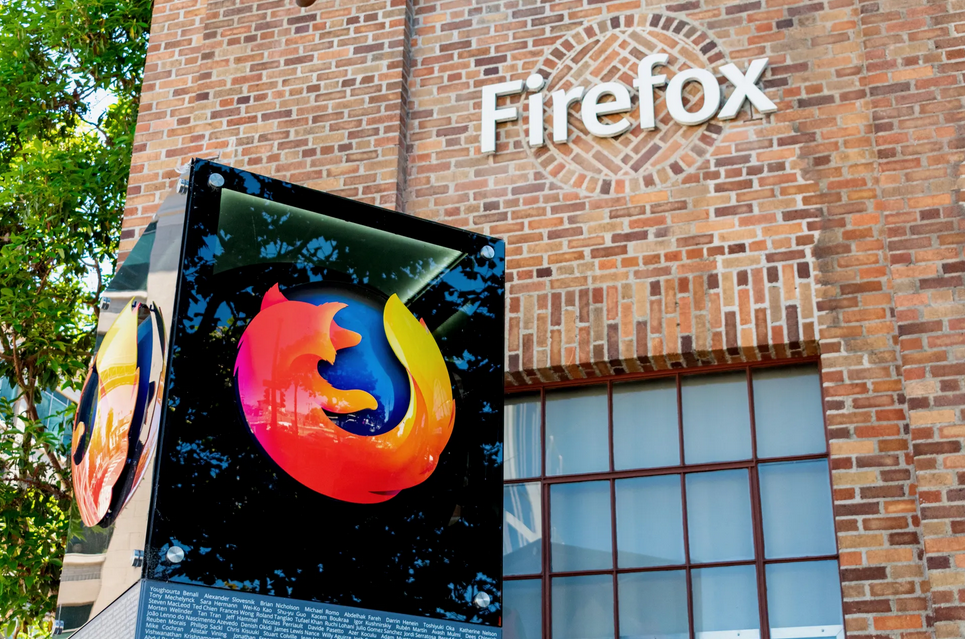How is Firefox doing?
The popular (at least some time ago) Mozilla browser, which the creators positioned as a solution with a high level of privacy, is in crisis. In the article, we will try to think about how certain “turns” in the fate of the browser can affect the future of the Internet.

At the end of 2008, Firefox was at its best. 20% of the 1.5 billion Internet users preferred the Mozilla browser to navigate the web. In Indonesia, Macedonia and Slovenia, more than half of all people going online used Firefox. “Our market share in the above regions has been growing at a tremendous pace,” Ken Kovash, former head of data analytics at Mozilla, wrote in a blog post. After 15 years, the situation is no longer so rosy.
The combined share of the browser has dropped to 4%, and directly on mobile devices it is a miserable 0.5%. “Looking back five years, looking at our market share and the numbers we’ve been reporting, we can’t deny a downturn,” says Selena Deckelmann, senior vice president of Firefox. Mozilla’s own statistics show that from the beginning of 2019 to 2022, the number of monthly active users decreased by about 30 million. “In the last couple of years, we have seen quite a significant stagnation,” adds Deckelmann.
In the two decades since Firefox stepped out of Netscape’s shadow, the company has done a lot to shape the concept of online privacy and security. Employees of the company have always promoted the ideas of increasing the transparency of the network and improving standards. But, as is often the case, in recent years, the Firefox team has already experienced two rounds of layoffs and personnel changes. And next year, a lucrative deal with Google that provides most of the company’s revenue expires. In addition, users have plenty to choose from: there are many good privacy-focused browsers on the market. And all sorts of flaws and rough edges in the new features threaten to alienate even dedicated Firefox users. All this made analysts and former employees of the company think about the future of the browser.
The fate of Firefox will determine the future of the entire Internet. For many years, it has been the main rival of Google Chrome and presented a worthy alternative to “the most popular browser in the world.” Since its release in 2008, Chrome has become literally synonymous with the web: it is used by about 65% of all web users and has a huge impact on how people generally experience the Internet. When Google launched AMP technology, websites rushed to implement it. And plans to replace external cookies in Chrome — a move that will affect millions of marketers and web publishers — are good for Google’s image as a whole.
“Chrome has won the desktop browser battle,” says one former Firefox employee. Alas, hopes for the revival of the former greatness of Firefox are small. “Right now, Firefox shouldn’t be counting on regaining any share of the browser market.” Another former Mozilla employee also believes that Firefox will not rise from the ashes, and this will just have to come to terms.
Mozilla has a complicated relationship with Google. After all, despite the competition, they are also business partners. Every year, Google pays Mozilla hundreds of millions of dollars in royalties. According to some reports, this figure is currently about $400 million a year – the price of having the Google search engine installed by default in Firefox. According to the 2020 financial report, Mozilla’s total revenue is $496 million, with royalties from search deals totaling $441 million. Firefox has other default search engine partners such as Yandex (note: although there have been a number of complications lately, Firefox no longer nominally supports the Yandex search engine in its native form)and these deductions are also extremely important for the company.
The agreement between Google and Mozilla will expire in 2023. Statistics show that Firefox’s market share declined by about 1% during the duration of this agreement. According to the company’s own data, the number of monthly active users remains stable and now stands at about 215 million people. However, there is no guarantee that Google will renew the agreement on the same terms. At the same time, Mozilla does not disclose the details of the agreements with its partners and does not report whether negotiations are underway with Google. Judging by Mozilla’s financial statements for 2020, despite the layoffs, the company is in good shape, and at the end of 2021 it expects an increase in revenue.
However, Mozilla and Firefox recognize that in order to grow, they need to diversify how they make money. Since 2019, the company has begun to make more efforts in this direction. In particular, the company has a Pocket service with a paid premium subscription. Mozilla has launched two VPN products, also available on a subscription basis. In addition, the company is increasingly promoting ads placed on Firefox’s new tabs.
Mozilla’s combined subscription and ad revenue grew from $14 million in 2019 to $24 million in 2020, and the company expects new products to generate another 14% of revenue. Independence from Google is Mozilla’s key to a “healthier” business model. However, some business decisions have already failed, and others may seem to run counter to Firefox’s commitment to privacy. For example, an encrypted file sharing service that was shut down after it was used to spread malware. Or showing ads in the address bar.
The need to find new sources of income arose precisely when Firefox faced unprecedented competition in the browser market. “Many browsers use the concept of privacy in their branding,” says Lourdes Turrecha, founder of Rise of Privacy Tech. Chrome’s competitors aim to differentiate themselves by not collecting data about your browsing history or tracking what you do online.”
In terms of privacy protection, Firefox is on par with its commercial competitors. “Firefox’s main focus is extensibility,” says Jonah Aragon, system administrator for Privacy Guides. “It has a lot of privacy features. Even if they are not enabled by default, at least you have them, and you can activate them if necessary.
In addition to the main Firefox browser for Android and iOS, Mozilla also offers the Focus solution, which provides increased data protection by default. (Deckelmann said browser use cases are different, and apps won’t merge into a single product. Despite the fact that Firefox actively competes with other privacy-focused browsers, it “borrowed” this set of features from competitors. For example, for the first time, block by default third party cookies, started Safari.
This confirms concerns about the future development of Firefox. Former employees say Mozilla should stick to a clear strategy for its flagship browser. “Essentially, this is a browser optimized for current security and privacy requirements. However, the company is trying to squeeze as much profit out of it as possible, rather than improve the actual functionality,” says one former employee, citing search advertising as an example of the company’s conflicting priorities.
“Once lost users are unlikely to return until they have a good reason to do so. But what can motivate them? asks Bart Willemsen, vice president of analytics and privacy at Gartner. Willemsen says he’s been using Firefox since its early days. “I think the real challenge for Firefox is to find a unique solution — not just in the marketing claims, but in the product itself — and move in the same direction,” he says.
For Dekkelmann, increasing the personalization of Firefox is key. In her opinion, this implies an attempt to increase the functionality of the browser to meet the requirements of people who now spend a lot of time on the Internet. “Now managing all this information is almost impossible,” says Deckelmann. For example, last year Firefox changed its home page so people can go back to previous searches and articles. The company has redesigned its Android app and added password manager features to the Firefox app.
Deckelmann says that Firefox will likely continue to look for ways to personalize the online experience. “I am not sure that the result of this work will meet the expectations of users, but in no case should we forget about their preferences and priorities,” she says. Firefox recently announced a partnership with Disney on one of Pixar’s new projects. So, right in the browser, users will be able to win a subscription to Disney +. Even though this action looks quite harmless, in fact it is a direct interference with the confidentiality of the process of working on the Internet.
Deckelmann adds that Firefox doesn’t need to be as popular as Chrome or Safari to be successful. “All we really want is to be a viable alternative,” she says. “We believe that diversity makes the Internet better for everyone.”
Today, the browser market is dominated by Google’s Chromium codebase and its Blink browser engine, the component that turns code into visual web pages. Microsoft’s Edge browser, Brave, Vivaldi, and Opera use customized versions of Chromium. Apple is forcing developers to use their WebKit browser engine on iOS. Firefox’s Gecko is the only real alternative on the market.
“This world needs variety,” Willemsen says. If the share of Firefox decreases even further, Chrome will have fewer competitors.” “This diversity is essential to ensure open internet standards and prevent monopolies.” Everyone we spoke to for this article, both inside and outside of Mozilla, agrees that the evolution of Firefox is making the Web a better place. The difficulty lies only in understanding how to achieve this development.





